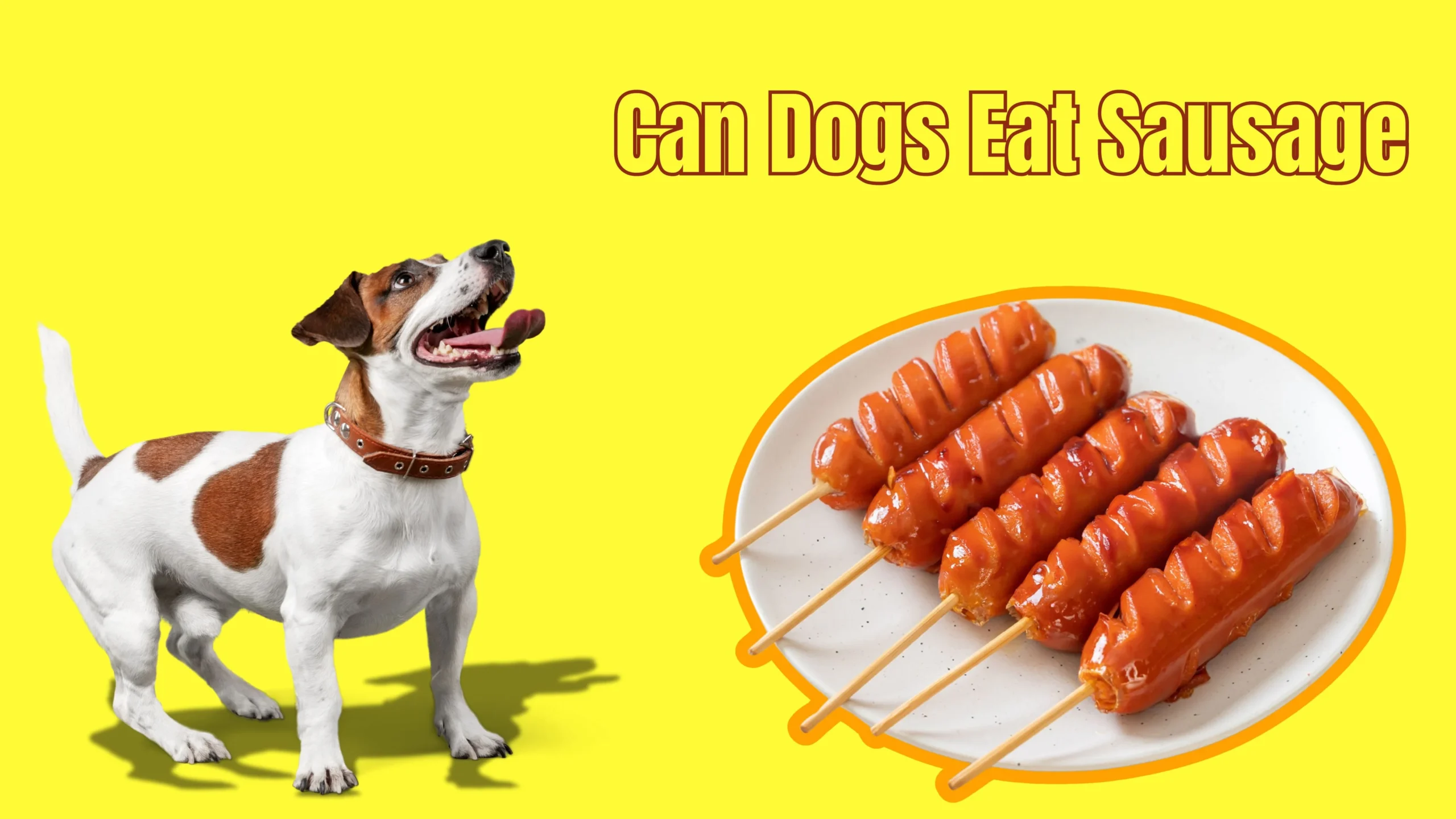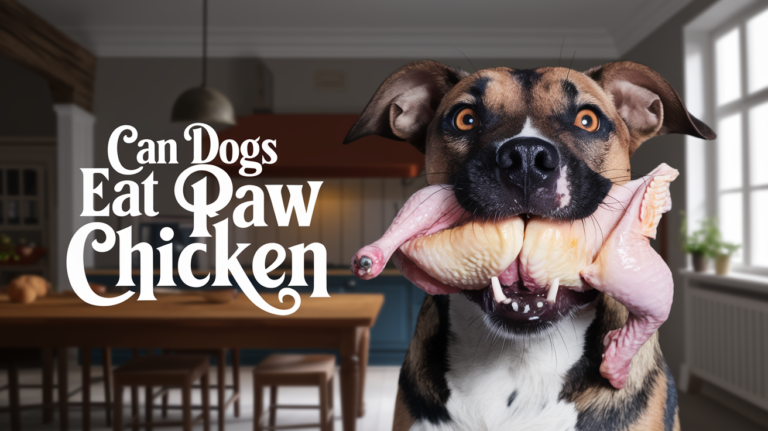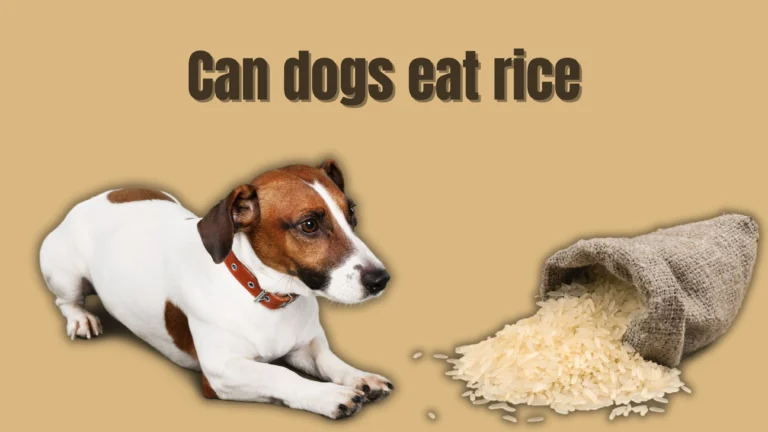Can Dogs Eat Sausage?
A sizzling sausage patty might be a Saturday morning staple for humans, but it’s not a suitable treat for dogs. While it might be tempting to share your breakfast with your canine friend, sausages are generally not recommended for dogs due to their high salt and fat content.
Consuming sausages can lead to various health issues for dogs, including stomach aches, obesity, diabetes, kidney damage, and pancreatitis. Can Dogs Eat Sausage? The sausage grease and spicy seasonings are particularly harmful and can contribute to these health problems if consumed in large amounts. Certain types of sausage are more problematic than others.
Pork sausage, for example, is high in fat and salt, making it an unsuitable protein source for dogs. Moreover, processed sausages may contain seasonings that are unsafe for canine consumption. Additionally, undercooked or contaminated sausages pose a risk of Trichinosis, a parasitic infection.
Sausages containing onion or garlic powder are especially dangerous, as these ingredients can cause anemia in dogs. Therefore while a small amount of unseasoned, thoroughly cooked sausage might be okay in moderation, it’s best to avoid giving your dog sausage altogether to prevent potential health risks
Is Sausage Bad for Dogs?
Sausages, in all their varieties including breakfast links, patties, and crumbles, are not suitable treats for dogs due to their harmful ingredients. The high fat and sodium content found in sausages can lead to serious health issues in dogs, such as pancreatitis, obesity, and diabetes. Additionally, the spices and seasonings used in sausages, such as garlic and onion, are toxic to dogs and can cause severe health problems, including anemia. Processed meats like sausages, which also contain potentially harmful additives like nutmeg, should be strictly avoided in your dog’s diet.
Unlike safer protein sources such as plain chicken, turkey, or beef, sausages offer little nutritional benefit to dogs and can contribute to their daily calorie and fat intake in unhealthy ways. For instance, a single sausage can account for a significant portion of a dog’s daily calorie needs, making it easy for them to exceed their recommended intake.
Furthermore, the processed nature of sausages includes ingredients that may pose cancer risks, underscoring the importance of keeping these foods out of your dog’s diet. Opting for healthier, unprocessed protein sources will better support your dog’s well-being and overall health.
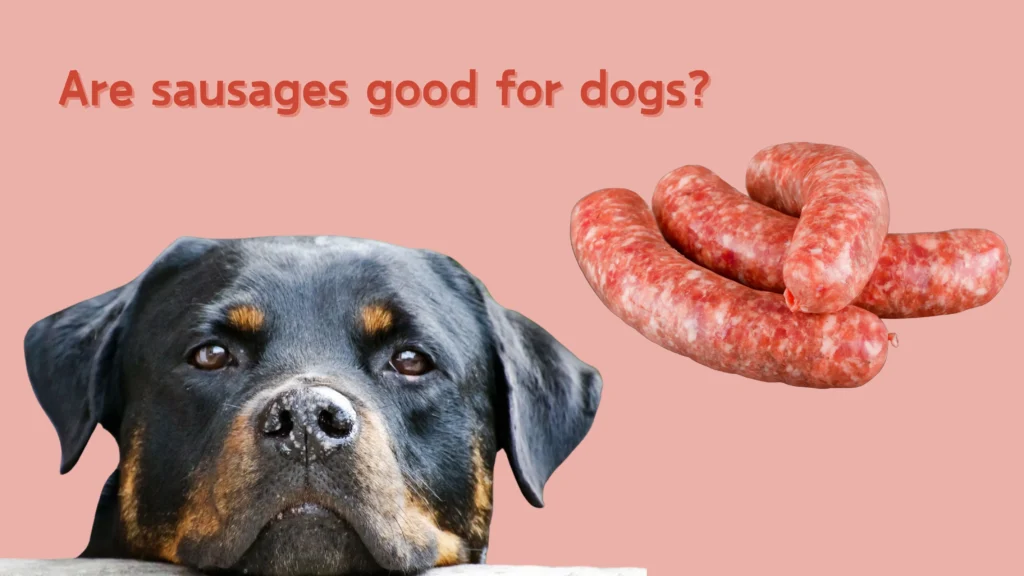
Are sausages good for dogs?
Sausages do not provide health benefits for dogs and should not be a regular part of their diet. These processed meats are high in fat and salt, and often include harmful ingredients like onion. While a small, occasional piece of plain, cooked sausage may not immediately harm your dog, it is not a healthy or advisable treat due to the risks associated with its high-fat content and potential for containing dangerous bacteria or parasites.
Meat in general is beneficial for dogs, as it provides essential protein and nutrients. However, sausages are an exception due to their processed nature and inclusion of spices and additives that are unsafe for dogs. Additionally, processed meats like sausages are known carcinogens, meaning they can increase the risk of cancer in dogs. Given these health concerns, it’s best to avoid giving sausages to your dog and opt for healthier protein sources instead.
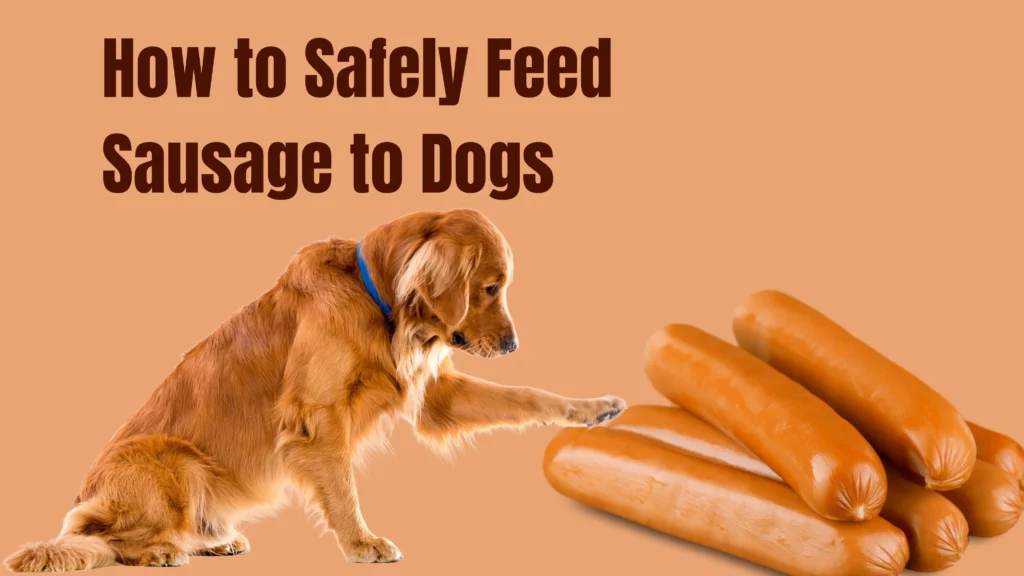
How to Safely Feed Sausage to Dogs
If you choose to give your dog a small amount of sausage as a treat, it’s important to do so safely. Pot for plain, unseasoned sausages, as many seasonings like garlic and onion are harmful to dogs. Baking the sausage is preferable over frying to reduce excess fat, and be sure to cook it thoroughly to avoid bacteria such as salmonella or E. coli. Cut the sausage into small pieces to prevent choking hazards and observe your dog’s reaction to the new food to ensure it doesn’t cause any adverse effects.
Although sausages are not the best choice for dogs, there are healthier alternatives. Lean meats such as plain chicken or turkey, and cooked vegetables like carrots and green beans, provide nutritious options. Commercial dog treats specifically formulated for canine health are another good choice. Remember to keep all treats within 10% of your dog’s daily caloric intake to maintain a balanced diet. Avoid giving large amounts of sausage or other processed meats to prevent health issues such as pancreatitis and cancer.

